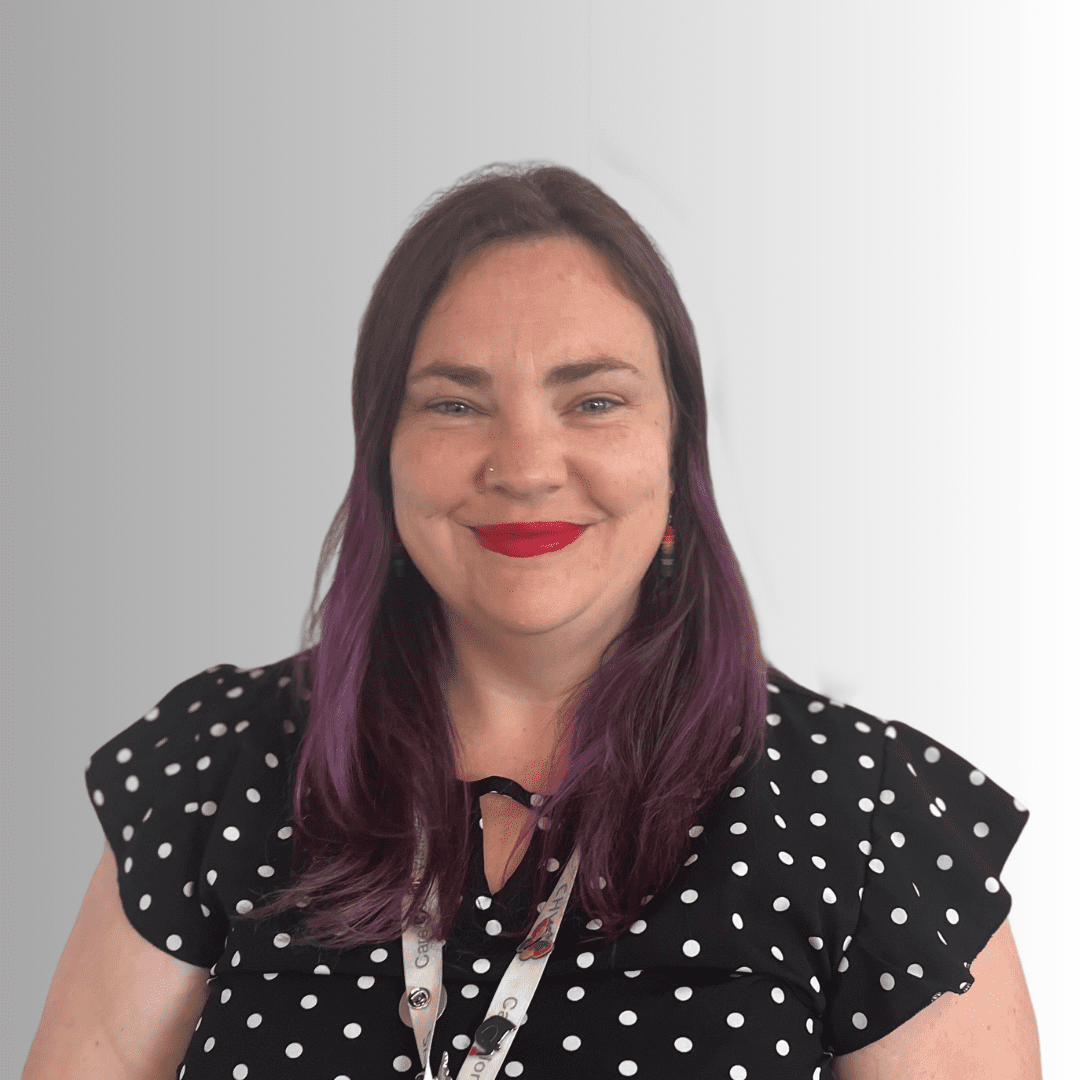The impact of Rowcroft’s Education Team
Care homes serve as havens for people to find solace and support during their final journeys, so the importance of training for care home staff should not be under-estimated. For many years, Rowcroft’s Education Team has been helping staff in care homes to build skills, knowledge and confidence in how to support residents who are nearing the end of life. In this blog, Gemma Guppy, a specialist nurse and care home and frailty lead at Brunel Medical Practice in Torquay, sheds light on the remarkable difference made by Rowcroft Hospice’s Education Team in improving end-of-life experiences for local care home residents.
Improving the quality of care
“One of the most significant outcomes of Rowcroft’s training is the improvement in the quality of end-of-life care within care homes,” says Gemma. “The specialist training gives care home staff the confidence and the knowledge to look after people who are approaching the end of life, and it gives them an important understanding about the difference between palliative care and end-of-life care. (Palliative care offers physical, emotional and practical support to people with a life-limiting or terminal illness. Although palliative care can include end-of-life care, palliative care is much broader and can last for longer – some people have palliative care for years.)
“With carers playing a pivotal role in end-of-life care, the Rowcroft training is vital in enhancing the skills of care home staff to help ensure that residents’ final days and weeks are as dignified as possible and that their wishes are fulfilled. The training improves practical skills, such as skin care at end of life, or eating and drinking at end of life, or administering medication in the appropriate way. It also covers other areas such as communication skills, making an end of life care plan, and the importance of having early conversations around wishes relating to death and dying. All of this helps to ensure that deaths can be as dignified and pain-free as possible.”
Free training for health and social care professionals
“On the whole, staff in care homes do not have the time to undertake this training so most staff undertake Rowcroft’s training in their own time at home. And they do it because they genuinely care about the residents and they want to provide the very best support for them; in many cases they treat their residents like their family. It’s great that the Rowcroft courses are free because this encourages more people to take part.”
Opening up the conversation
“While the Care Quality Commission has recommended for some time that residents should have end-of-life care plans in place, previously these plans were predominantly focused on funerals. However, with Rowcroft’s support, conversations around death and dying are being opened up and broadened, and the taboo around death is being challenged. This is important because the reality with care homes is that someone is going to die eventually, so it’s good to prepare for this.
“For example, through Rowcroft’s training, care home staff are learning to initiate and facilitate sensitive conversations around death and dying; they’re gaining the confidence to engage in compassionate and empathetic conversations with residents and their families. Residents are encouraged to talk more freely about their future wishes so that everyone understands their choices, and this helps to ensure that their wishes are honoured and respected. These discussions provide comfort and reassurance to individuals facing the end of life, as well as to their loved ones. It also means that families are not having to make such difficult decisions when someone’s really poorly, because they’ve had those conversations previously, and they have plans already in place.
“Another additional benefit of the staff training is that residents can be supported in their care homes for longer, as per their wishes, rather than experiencing the upheaval and stress of being relocated to hospital.”
A personal testimony
“I’ve been to many of Rowcroft’s training courses myself; I really like that the sessions are led by experts in different specialist fields. The training is also really interactive and I’ve found it a great place to share experiences and learning. For me as a nurse, Rowcroft’s training was invaluable, particularly in making critical decisions on the spot when attending to end-of-life patients. Rowcroft’s training built my confidence and gave me the tools to provide compassionate care to individuals in their final moments.”
Further information
Find out more about Rowcroft’s education and training or visit Rowcroft’s ‘Planning for the Future’ hub that has been developed to support people in having conversations around their wishes for death and dying, and preparing for the future.
More blogs from Rowcroft

